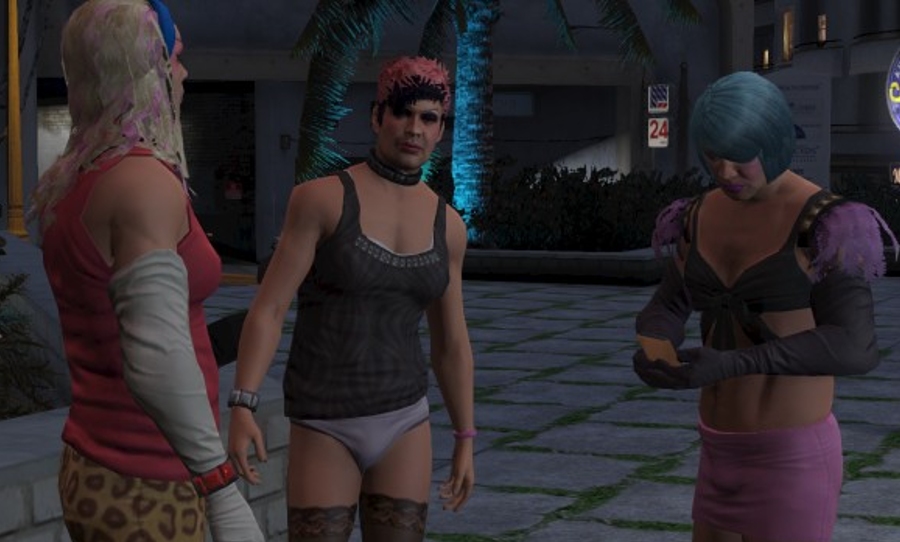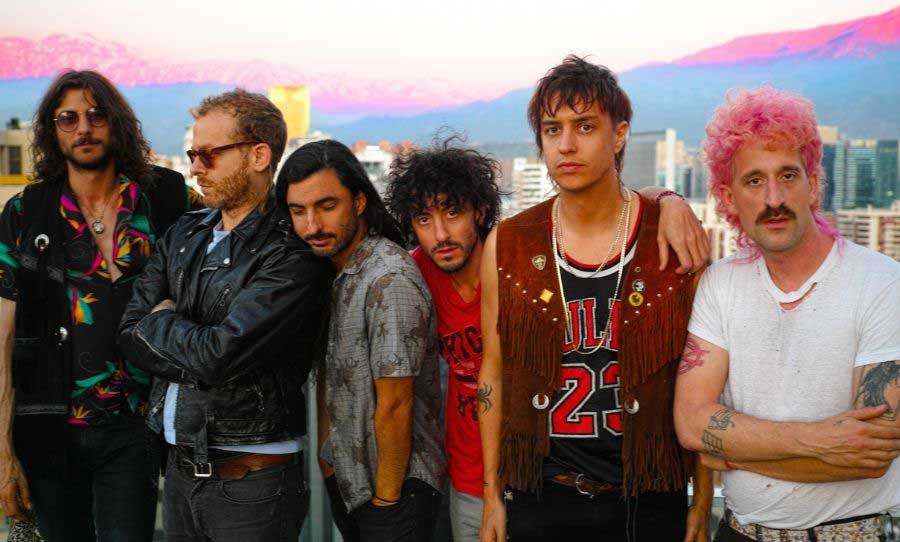When GTA V released in 2013 its depiction of trans people was unsympathetic. In 2021 it feels needlessly cruel and hurtful. But should games be retroactively edited to make them more palatable to today’s standards?
GTA V, and the entire Grand Theft Auto series for that matter, has a long history with controversy. The series leans hard into cultural stereotypes and crass humour. And that’s without even getting started on its glorified depiction of criminal enterprise.
Developer Rockstar Games have generally defended their games by arguing that it’s all satire, that those who have taken offence simply haven’t understood their sophisticated brand of storytelling. And if that doesn’t do the the trick? Well, GTA V is all about equal opportunity.
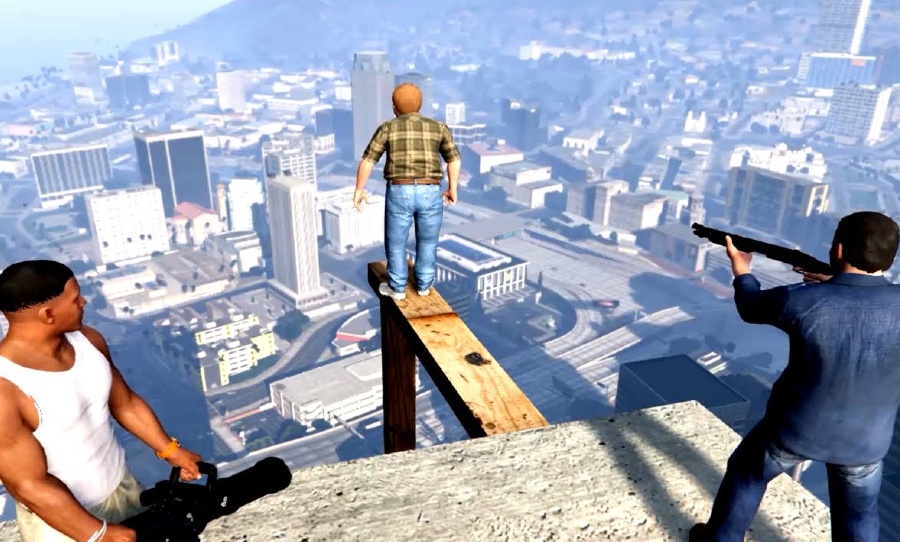
Not only are almost all groups, ethnicities, and professions portrayed poorly, they are equally murderable. The fact that you can kill vulnerable groups such as sex workers, trans people, and the homeless in a video game sounds problematic and damning. But in the context of GTA V, where freedom and chaos reign supreme, it would actually be more surprising if you couldn’t.
You aren’t encouraged to do these particular despicable acts, you just aren’t prevented from doing them.
It should also be noted that the first controversy the Grand Theft Auto series had to contend with stemmed from your ability to deliberately kill police officers. So the series has copped it from both sides of the political divide, as you can imagine.
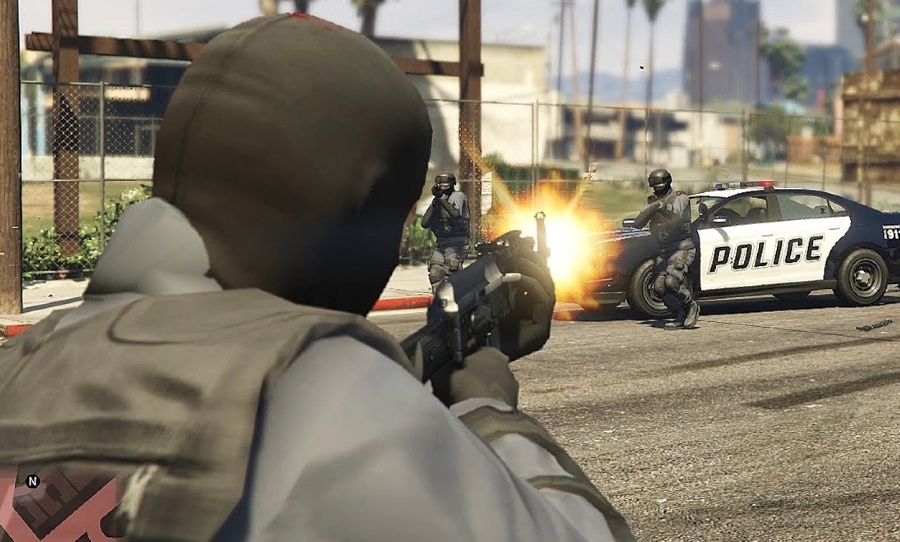
Nonetheless, GTA V’s portrayal of trans people, and other unfairly targeted groups, brings to mind the following quote by Terry Pratchet – a true master of satire:
“Satire is meant to ridicule power. If you are laughing at people who are hurting, it’s not satire, it’s bullying.”
For me that pretty much settles one part of this debate. Rockstar should reflect on how their depictions have added further hurt to communities that already suffer far more than their fair share, and also helped normalise the violence that is frequently perpetrated against them.
An apology would likely be welcomed, and go some distance in establishing a better relationship with these communities. A trigger warning would also be an appropriate addition for future re-releases such as the upcoming GTA V Enhanced Edition.
Is retroactive censorship the solution?
However, this same line of thinking has been used to argue Rockstar should simply delete the offending content from their games. Kotaku’s Carolyn Petit wrote a fantastic piece calling for Rockstar to proceed in this fashion, writing: “What I want to see is a company reconsidering its own ill-advised creative decisions of the past and opting to address them, rather than just continuing to tweak superficial details”.
I agree with their sentiment, but I don’t feel that self-censorship of one’s past behaviour is the best way to build a better future. It’s revisionist, and actually allows perpetrators to feign innocence and discount the consequences of their past actions.
By deleting their problematic depiction of trans characters from GTA V, Rockstar would be rewriting history in a way that plasters over their past transgressions; which comes dangerously close to gaslighting those they offended in the first place.
I wish GTA V's world weren't so relentlessly, inescapably misanthropic and particularly hateful to women and trans people, because there's a lot about it that would otherwise make it very much a world I might enjoy being out and about in right now.
— Carolyn Petit (@carolynmichelle) May 14, 2020
Are video games worth accurately preserving?
Video games are historical documents that bear the markings of the time they were created. In the same way that pixelated graphics betray their age, the values, beliefs, fears and ignorance of their creators have a funny way of popping up unexpectedly.
The original Tomb Raider games, despite trying to portray a powerful female lead, now come across as an India Jones-obsessed teenager’s wet dream. The modern day reimagining of the series has gone some way to righting this wrong, but what would really be gained by going back and giving pixel Lara Croft more appropriate outdoor attire?
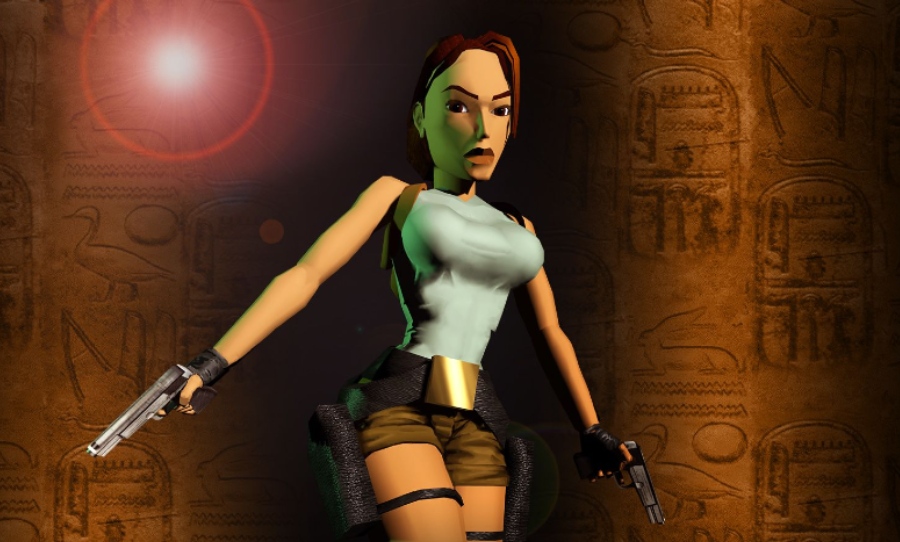
The progression of Lara Croft’s design is actually a fascinating example of changing cultural values positively effecting the video game industry. But to alter how she appeared in the original game would be to deny, or at the very least disguise, how sexist the industry was in 1996.
A proper remake, on the other hand, offers the perfect opportunity to update a game, whilst ideally acknowledging what was problematic in the original (Final Fantasy VII Remake does a reasonable job pulling this off in its infamous dress quest).
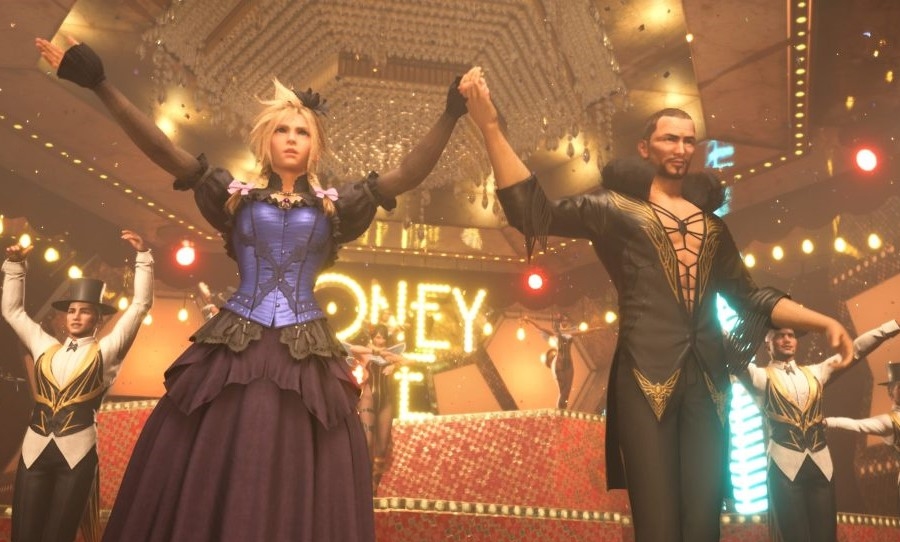
For the reasons stated above, I don’t support altering films, literature, music or video games that have retrospectively been deemed offensive by today’s standards. I advocate for warnings, and contextual information that explain why these works should be viewed critically. If those that created the work wish to explain themselves, and apologise for the offence they have caused, then I think that’s even better.
Going forward under this paradigm should foster understanding, accountability, and a progressive environment that is conducive to creating. Deleting offensive content, on the other hand, just increases the likelihood that history will repeat itself.
